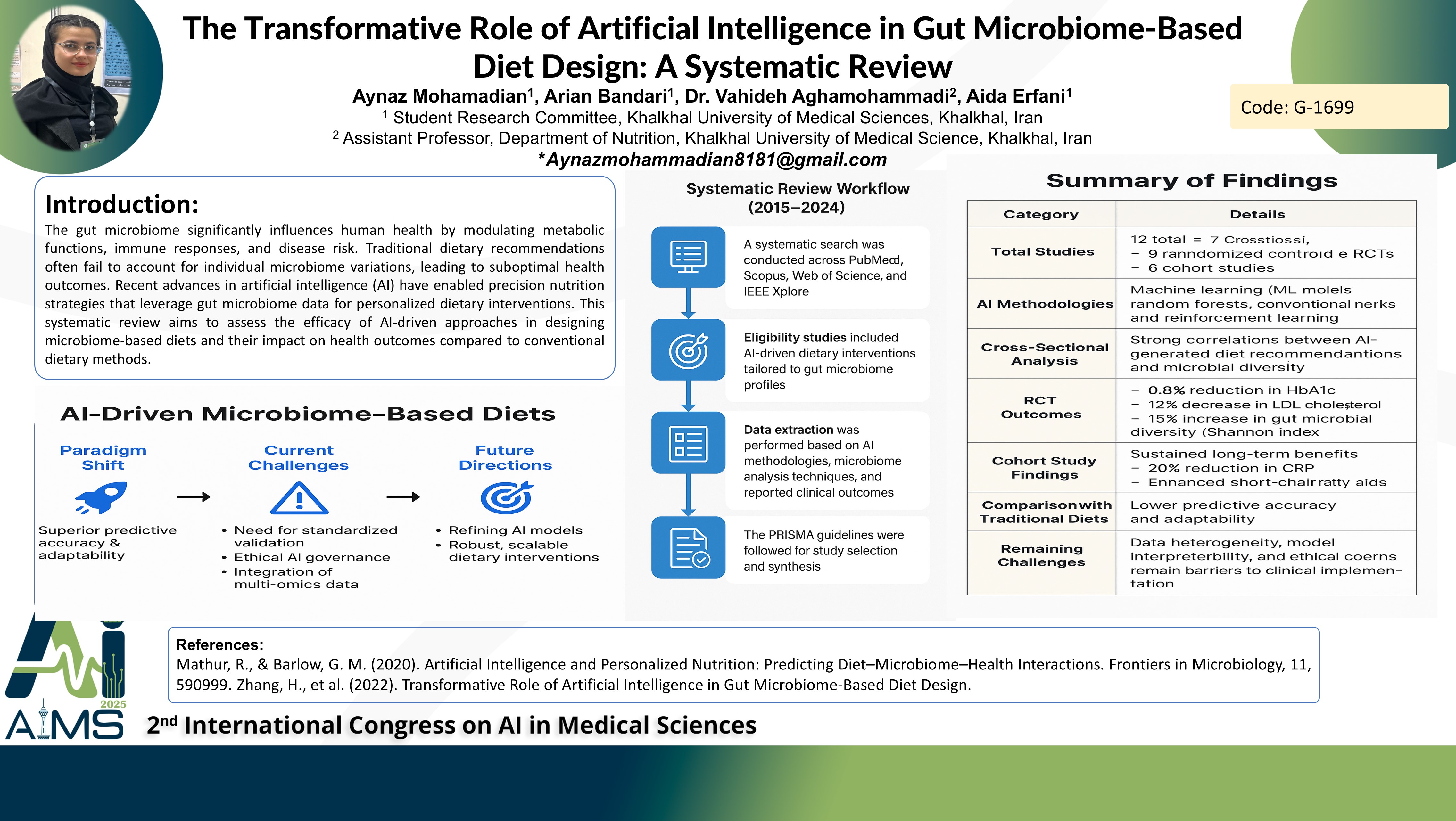نقش تحول آفرین هوش مصنوعی در طراحی رژیم غذایی مبتنی بر میکروبیوم روده: یک مرور سیستماتیک
کد: G-1699
نویسندگان: Aynaz Mohammadian * ℗, Arian Bandari, Aida Erfani, Dr. Vahideh Aghamohammadi
زمان بندی: زمان بندی نشده!
برچسب: تشخیص و درمان سرطان
دانلود: دانلود پوستر
خلاصه مقاله:
خلاصه مقاله
Background and aims: The gut microbiome significantly influences human health by modulating metabolic functions, immune responses, and disease risk. Traditional dietary recommendations often fail to account for individual microbiome variations, leading to suboptimal health outcomes. Recent advances in artificial intelligence (AI) have enabled precision nutrition strategies that leverage gut microbiome data for personalized dietary interventions. This systematic review aims to assess the efficacy of AI-driven approaches in designing microbiome-based diets and their impact on health outcomes compared to conventional dietary methods. Method: A systematic search was conducted across PubMed, Scopus, Web of Science, and IEEE Xplore for studies published between 2015 and 2024. Eligible studies included AI-driven dietary interventions tailored to gut microbiome profiles. Data extraction was performed based on AI methodologies, microbiome analysis techniques, and reported clinical outcomes. The PRISMA guidelines were followed for study selection and synthesis. Results: A total of 27 studies met the inclusion criteria, including 12 cross-sectional studies, 9 randomized controlled trials (RCTs), and 6 cohort studies. AI methodologies predominantly involved machine learning (ML) models such as random forests, convolutional neural networks, and reinforcement learning algorithms. Cross-sectional studies (n=12) analyzed microbiome composition and dietary patterns, revealing strong correlations between AI-generated dietary recommendations and microbial diversity. RCTs (n=9) demonstrated that AI-driven dietary interventions led to superior metabolic outcomes, including a 0.8% reduction in HbA1c, a 12% decrease in LDL cholesterol, and a 15% increase in gut microbial diversity (Shannon index). Cohort studies (n=6) reported sustained long-term benefits, such as a 20% reduction in inflammatory markers (CRP) and enhanced short-chain fatty acid production. Comparatively, traditional dietary approaches showed lower predictive accuracy and adaptability to dynamic microbiome variations. Despite these promising results, challenges such as data heterogeneity, model interpretability, and ethical considerations remain barriers to clinical implementation. Conclusion: AI-driven gut microbiome-based diets represent a paradigm shift in personalized nutrition, offering superior predictive accuracy and adaptability over conventional approaches. However, overcoming current challenges requires standardized validation frameworks, ethical AI governance, and integration of multi-omics data. Future research should focus on refining AI models for more robust and scalable dietary interventions.
کلمات کلیدی
Artificial Intelligence, Gut Microbiome, Precision Nutrition
